China to keep watch on Abe’s push to change pacifist constitution
Golez: JAPAN'S RESPONSE TO CHINA'S AGGRESSIVENESS https://t.co/Y4hw6g7IR3 via @SCMP_News
Golez: JAPAN'S RESPONSE TO CHINA'S AGGRESSIVENESS https://t.co/Y4hw6g7IR3 via @SCMP_News
I quote from this article:
1. CHINA WORRIED ABOUT JAPAN'S MOVE TO ALTER ITS PACIFIST CONSTITUTION: "The big electoral win on the weekend for Japanese Prime Minister Shinzo Abe’s Liberal Democratic Party will give a short-term boost to ties with China but Beijing will keep a wary eye on any moves in Tokyo to alter the pacifist constitution."
2. PRIME MINISTER ABE NOW LOOKING AT US-DRAFTED PACIFIST CONSTITUTION: "Before the election, Abe made friendly overtures to China including a rare appearance at a Chinese embassy event last month to celebrate China’s national day.
But a day after the LDP and a small coalition partner secured at least 312 of the 465 seats in Japan’s lower house, Abe signalled a push to revise the US-drafted constitution.
Diplomatic observers said that despite warming ties, tensions remained between the two countries.
Abe’s election super majority puts Japan’s pacifist constitution in his crosshairs"
But a day after the LDP and a small coalition partner secured at least 312 of the 465 seats in Japan’s lower house, Abe signalled a push to revise the US-drafted constitution.
Diplomatic observers said that despite warming ties, tensions remained between the two countries.
Abe’s election super majority puts Japan’s pacifist constitution in his crosshairs"
3. CHINA BELIEVES JAPAN WILL NOT COMPROMISE ON DIAOYU (SENKAKU) ISLANDS: " Huang Dahui, director of Renmin University’s Centre of East Asia Studies, said there was a difference in national interests between the two countries.
“Japan’s national interests are totally different from China’s. To [Japan] improving relations means restoring high-level communication. [But] Japan will not make any concessions regarding the Diaoyu Islands and its leaders will not stop visiting the Yasukuni Shrine. These are Beijing’s major concerns,” Huang said. “So, the stumbling blocks for relations will still exist and last a long time.”
The weekend win means Abe is certain to stay on as the LDP’s leader for another three years when it goes to a party vote in September.
“Japan’s national interests are totally different from China’s. To [Japan] improving relations means restoring high-level communication. [But] Japan will not make any concessions regarding the Diaoyu Islands and its leaders will not stop visiting the Yasukuni Shrine. These are Beijing’s major concerns,” Huang said. “So, the stumbling blocks for relations will still exist and last a long time.”
The weekend win means Abe is certain to stay on as the LDP’s leader for another three years when it goes to a party vote in September.
"The disputed Diaoyu Islands, known as the Senkakus in Japan, remain a sticking point between Tokyo and Beijing. Photo: Kyodo
"Zhou Yongsheng, a Japanese affairs expert at China Foreign Affairs University, said Abe had taken a friendlier tack towards China in the last year and the momentum would continue. But the big question was whether the next three years would give Abe enough time to achieve his long-term goal to revise the Japanese pacifist constitution to legitimise Japan’s Self-Defence Force.
Article 9 of the document outlaws war as a means for Japan to settle international disputes involving the state. Armed forces with war potential are also prohibited."
Article 9 of the document outlaws war as a means for Japan to settle international disputes involving the state. Armed forces with war potential are also prohibited."
What Shinzo Abe’s election win will mean for China-Japan relations
4. CALLS FOR CHANGES TO CONSTITUTION HAVE GAINED GROUND IN JAPAN: "But calls for changes to the constitution have gained ground in Japan, with parties in favour of amendment winning nearly 80 per cent of the seats in the election, according to Reuters.
“Beijing would be most concerned with Abe’s moves to amend the constitution, although it wouldn’t be a direct threat to China in the short-run,” Zhou said.
In Beijing, Chinese Foreign Ministry spokesman Geng Shuang said on Monday that China hoped Japan would take practical action to promote stability and improve bilateral relations.
In Beijing, Chinese Foreign Ministry spokesman Geng Shuang said on Monday that China hoped Japan would take practical action to promote stability and improve bilateral relations.
"Also in Beijing, Guo Yezhou, vice-minister of the International Department of the Communist Party’s Central Committee, said over the weekend that a visit by Abe to China would depend on “public opinion”, suggesting the Japanese leader should avoid inflaming nationalist sentiment in China."
“High-level exchanges are important to boost the development of bilateral relations, but such exchanges should first have public support and understanding,” Guo said."
China to keep wary watch on Abe’s push to change pacifist constitution
South China Morning Post
Despite warming ties under Japanese leader, sticking points remain between the two countries, analysts say
PUBLISHED : Monday, 23 October, 2017, 9:10pm
UPDATED : Monday, 23 October, 2017, 10:52pm
The big electoral win on the weekend for Japanese Prime Minister Shinzo Abe’s Liberal Democratic Party will give a short-term boost to ties with China but Beijing will keep a wary eye on any moves in Tokyo to alter the pacifist constitution.
Before the election, Abe made friendly overtures to China including a rare appearance at a Chinese embassy event last month to celebrate China’s national day.
But a day after the LDP and a small coalition partner secured at least 312 of the 465 seats in Japan’s lower house, Abe signalled a push to revise the US-drafted constitution.
Diplomatic observers said that despite warming ties, tensions remained between the two countries.
Huang Dahui, director of Renmin University’s Centre of East Asia Studies, said there was a difference in national interests between the two countries.
“Japan’s national interests are totally different from China’s. To [Japan] improving relations means restoring high-level communication. [But] Japan will not make any concessions regarding the Diaoyu Islands and its leaders will not stop visiting the Yasukuni Shrine. These are Beijing’s major concerns,” Huang said. “So, the stumbling blocks for relations will still exist and last a long time.”
The weekend win means Abe is certain to stay on as the LDP’s leader for another three years when it goes to a party vote in September.
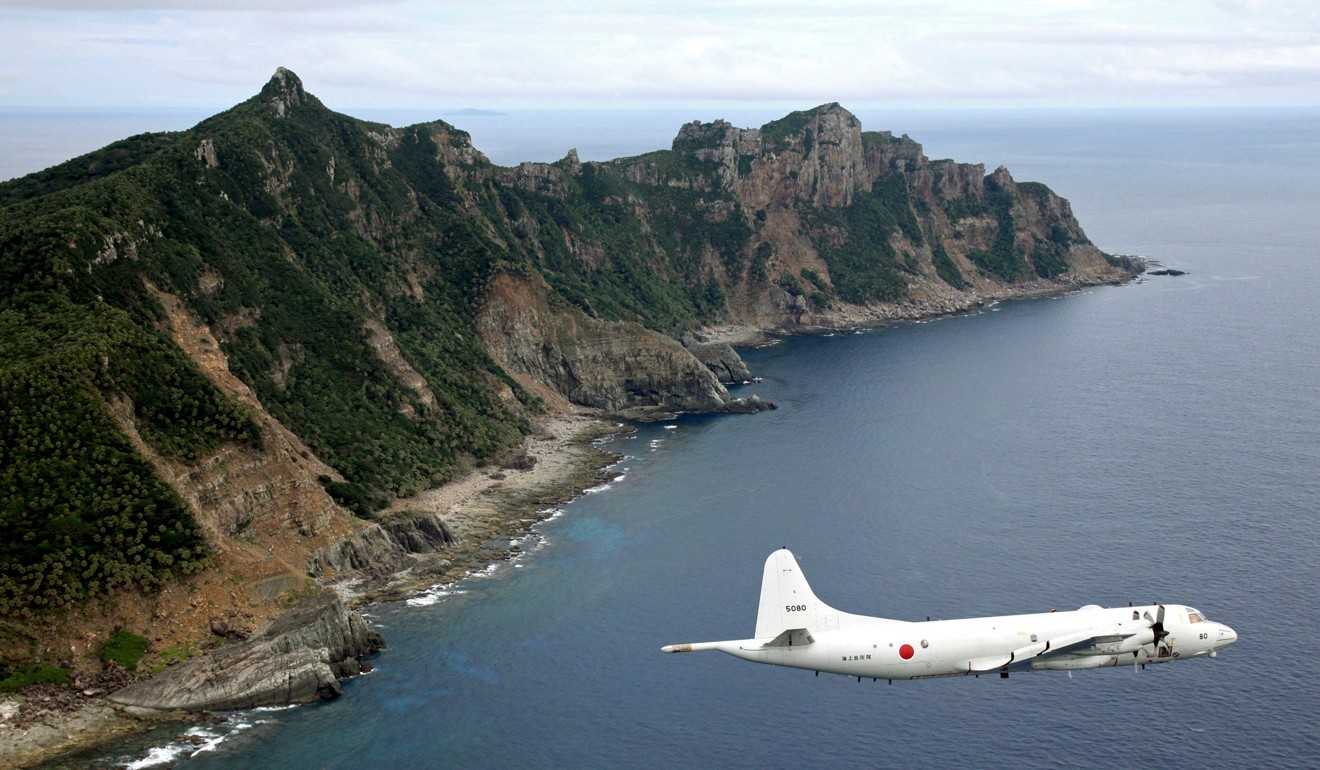
Zhou Yongsheng, a Japanese affairs expert at China Foreign Affairs University, said Abe had taken a friendlier tack towards China in the last year and the momentum would continue. But the big question was whether the next three years would give Abe enough time to achieve his long-term goal to revise the Japanese pacifist constitution to legitimise Japan’s Self-Defence Force.
Article 9 of the document outlaws war as a means for Japan to settle international disputes involving the state. Armed forces with war potential are also prohibited.
But calls for changes to the constitution have gained ground in Japan, with parties in favour of amendment winning nearly 80 per cent of the seats in the election, according to Reuters.
“Beijing would be most concerned with Abe’s moves to amend the constitution, although it wouldn’t be a direct threat to China in the short-run,” Zhou said.
In Beijing, Chinese Foreign Ministry spokesman Geng Shuang said on Monday that China hoped Japan would take practical action to promote stability and improve bilateral relations.
Also in Beijing, Guo Yezhou, vice-minister of the International Department of the Communist Party’s Central Committee, said over the weekend that a visit by Abe to China would depend on “public opinion”, suggesting the Japanese leader should avoid inflaming nationalist sentiment in China.
“High-level exchanges are important to boost the development of bilateral relations, but such exchanges should first have public support and understanding,” Guo said.
This article appeared in the South China Morning Post print edition as: BEIJING WARY ABE MAY MOVE TO CHANGE PACIFIST CONSTITUTION
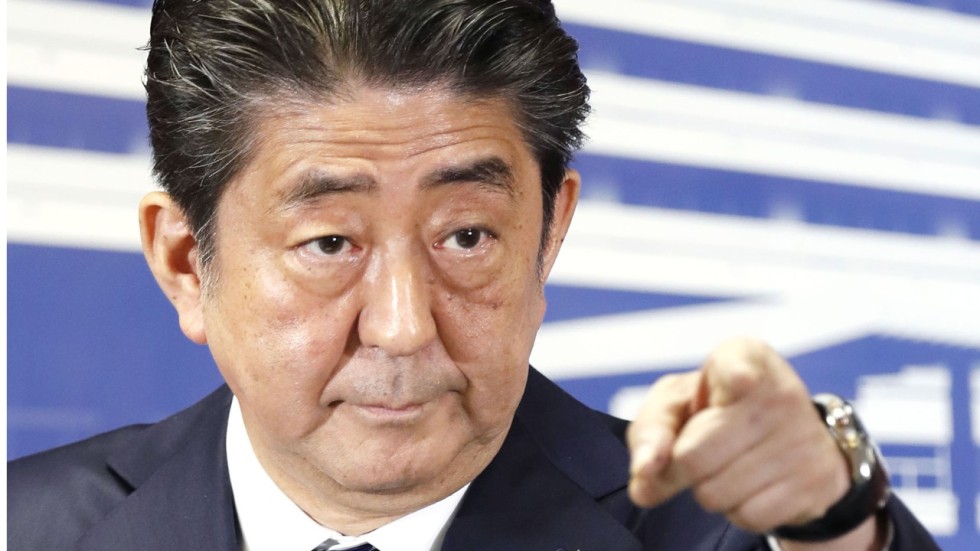

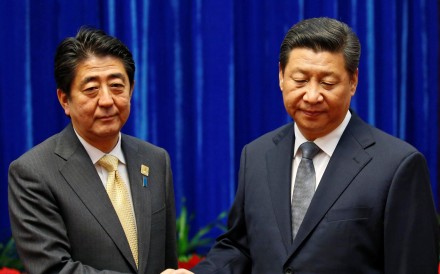
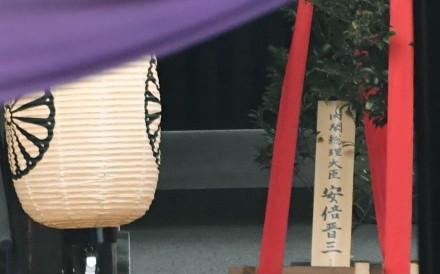
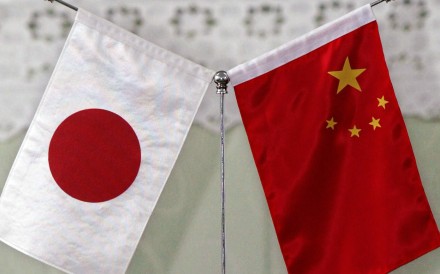
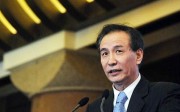



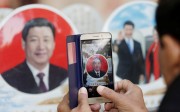

No comments:
Post a Comment